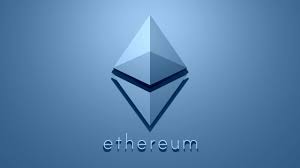CRYPTOCURRENCY

ETHEREUM DEVELOPERS GEAR UP FOR THE FINAL PECTRA TEST AHEAD OF MAINNET DEPLOYMENT.
Nixo Rokish of the Ethereum Foundation told ESSENTIAL NEWS that unforeseen issues on two testnets have left developers stressed and fatigued.
Ethereum developers are facing mounting pressure as the Pectra upgrade transitions to a new testnet following unforeseen issues that have delayed its mainnet rollout.
Initially expected to go live on the Ethereum mainnet in March, the Pectra upgrade was deployed on the Holesky testnet on Feb. 24. However, it failed to finalize, prompting developers to investigate and resolve the issues.
On March 5, the update was pushed to the Sepolia testnet, but developers encountered further errors, exacerbated by an unknown attacker exploiting an “edge case” to generate empty blocks.
In response, Ethereum core developers have launched a new testnet called “Hoodi” to better prepare for the upgrade.
Hoodi was launched on March 17, with the Pectra upgrade scheduled to roll out on March 26. If everything proceeds smoothly, the upgrade could go live on the mainnet as early as April 25.
In an interview with E-NEWS Felix Ng, Ethereum Foundation protocol support team member Nixo Rokish acknowledged the challenges developers have faced while preparing for the Pectra upgrade.
“I think people are nervous because we just had two testnets in a row experience unexpected issues that weren’t fundamentally related to how it would have played out on the mainnet,” Rokish told E-NEWS. Rokish noted that fatigue is becoming a challenge, particularly for the consensus layer developers, as Hoodi represents the third attempt to test Pectra. "I think the consensus layer developers, and to some extent the execution layer developers as well, are feeling exhausted at this point," Rokish told Essential News. Rokish explained that the Holesky testnet encountered issues partly because it had never been tested with such a small validator set on the canonical chain.
"As decentralized as Holesky is, it had never been tested with so few validators on the canonical chain," she noted.
With only about 10% of validators remaining on the canonical chain, their RAM and memory became overloaded as they continued storing the state for the 90% of validators on the non-canonical chain.
Rokish admitted that this was an unforeseen challenge. "The consensus layer developers suddenly had to make significant adjustments, and I think that was really exhausting for them," she said.
Despite these testnet setbacks, Ethereum’s broader development remains on track.
On March 13, 2024, the network successfully implemented the Dencun upgrade, introducing several major changes.
Previously a major issue, high gas fees have significantly decreased. One year after the Dencun upgrade, Ethereum’s gas fees dropped by 95%, reaching a historic low of 0.28 gwei on March 23.
"This represents a significant development in our ongoing coverage of current events."— Editorial Board









